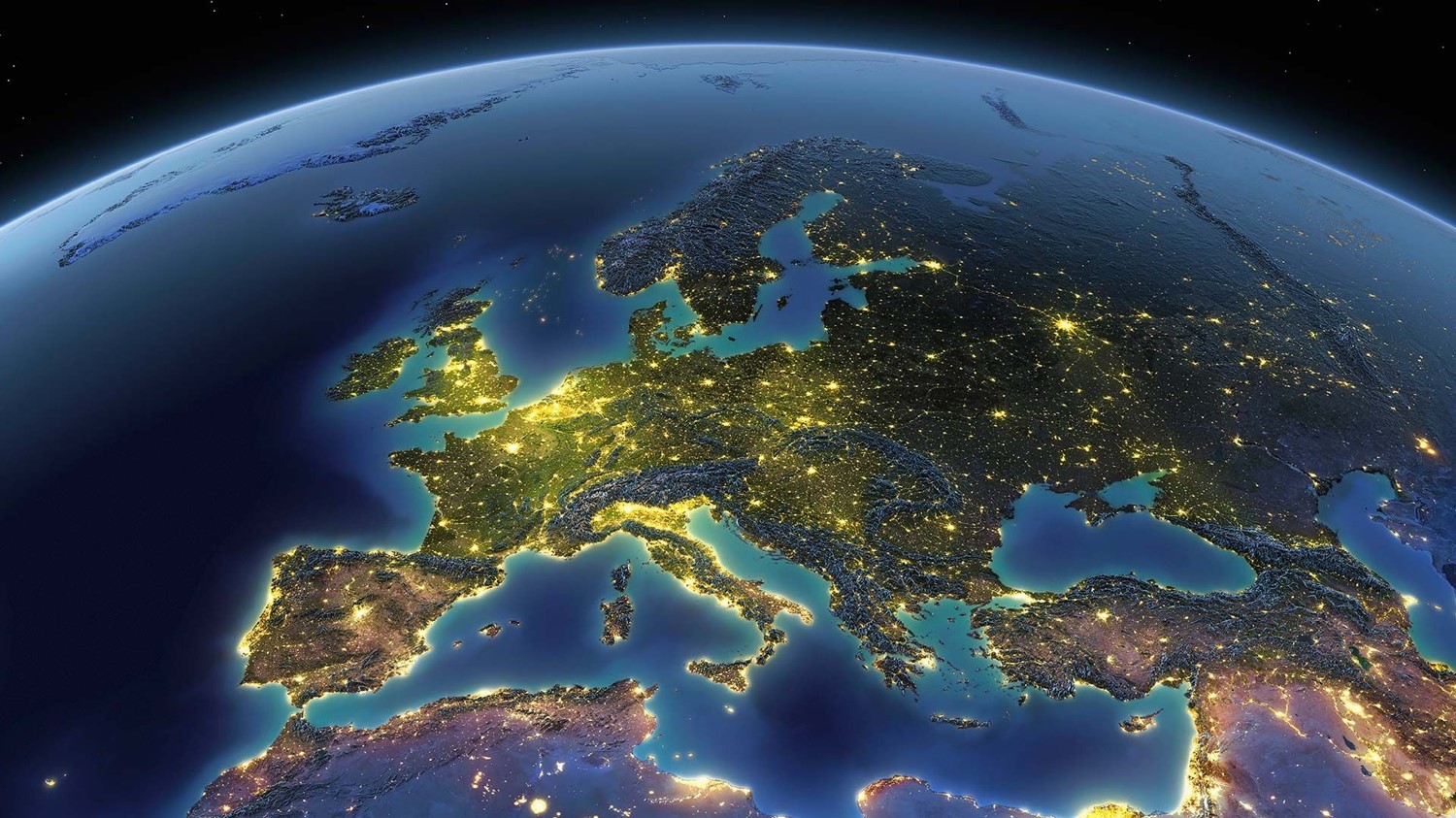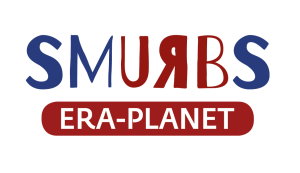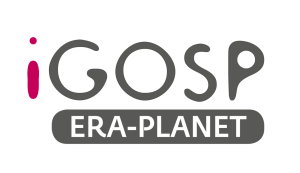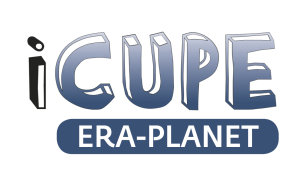/ SMURBS - SMart URBan Solutions for air quality, disasters and city growth
SMURBS ultimate goal is to promote the "smart‐city" approach, serving the need for a common approach to enhance environmental and societal resilience to specific urban pressures, through the integration of EO. In view of this goal, its objectives are divided into 3 categories: a) Overarching, which target to the alignment with and exploitation of existing programmes, strategies, data, networks, services and goals, b) Vertical, which define the targeted urban pressures (air pollution, disasters, urban growth) and their reciprocal relations with health, migration and other inequalities, and c) Horizontal, to assure interoperability of the produced data and services within ERA‐PLANET and other infrastructures. The overall ambition of SMURBS is to improve the quality of life of citizens and enhance cities' resilience with respect to air pollution and both natural and manmade disasters, through a chain of "smart urban solutions", that take into account existing rates of urban growth, long standing impacts like on health and newly rising pressures like migration. Existing smart‐cities or networks of them, do not fully exploit the capacities provided by EO, to deliver holistic approaches to modern environmental pressures. SMURBS main aspiration is to bring together a vast array of partners of a high degree of expertise in EO, pooling national resources, facilities and coordinating national/regional research programmes, cultivating exchange of know‐how and enforcing interdisciplinary action to overcome the currently fragmented status of EO under the common banner of the smart‐city concept.
DURATION: 1/9/2017 - 31/8/2020
NUMBER OF PARTNERS: 19
PARTNERS: NOA (CO), AoA, AUTH, CNR, CNRS, CREAF, HZG, ISPRA, IVL, JSI, MU, NCSR, PSI, ROSA, SRI, SU, TROPOS, UHEL, UNICAL, UNIGE
DELIVERABLES: http://smurbs.eu/deliverables/
PROJECT COORDINATOR: Evangelos Gerasopoulos, IERSD/National Observatory of Athens, Greece
CONTACT: This email address is being protected from spambots. You need JavaScript enabled to view it. , This email address is being protected from spambots. You need JavaScript enabled to view it.
WEBSITE: http://www.smurbs.eu
SOCIAL: @SMURBSproject
/ GEO-essential - Essential Variables workflows for resource efficiency and environmental management
GEOEssential is addressing the need for trusted sources of data and information to monitor the progresses made on environmental conditions towards policy targets. The project will demonstrate the feasibility of Essential Variables across GEO Societal Benefit Areas. It will create cross-thematic workflows to evaluate, predict and monitor natural resources to inform via Earth Observations the Sustainable Development Goals. Existing structures and platforms will be analysed in order to identify substantial gaps and synergies for addressing the needs of environmental policy in agriculture, soil, water, biodiversity, energy, light and raw materials. Solutions for improvements will be provided in cooperation with GEO and Copernicus programmes. GEOEssential will create a Knowledge Base infrastructure to facilitate the collection and formalization of the knowledge (i.e. user needs, gaps recognition and recommendations for closing gaps, best practices, Community of Practice lexicon, etc.) stemming from the European NetworkEarth Observation Networks (http://www.eneon.net/graph) and from other significant Earth Observations (EO) initiatives and programs at the National and European levels.
DURATION: 1/9/2017 - 31/8/2020
NUMBER OF PARTNERS: 14
PARTNERS: UNIGE (CO), CNR, AUTH, CNIG, CREAF, FZJ, GFZ, IIASA, MFN, SGN, SRI, UFZ, UNICAL,UNIPD
DELIVERABLES: http://www.geoessential.eu/progress/deliverables/
PROJECT COORDINATOR:
Anthony Lehmann, Université de Genève, Switzerland
CONTACT: This email address is being protected from spambots. You need JavaScript enabled to view it.
WEBSITE: http://www.geoessential.eu/
SOCIAL: @GEO_Essential
/ IGOSP - Integrated Global Observing Systems for Persistent Pollutants
Development of a Transnational Environmental Observation System in Support of European & International Policies through the Integration of real-time monitoring data from various platforms, modelling tools and advanced global cyber-infrastructure for data sharing and interoperability. The overall goal of Strand-3 is to develop a new paradigm for real-time monitoring of the quality of our environment with reference to the contamination of air, water and terrestrial ecosystems by persistent pollutants. The overarching objective of this strand is the development of a fully integrated system of advanced sensors (based on nano-structured advanced materials) for major persistent pollutants coupled with state-of-the-art interoperable systems for data sharing and data management.IGOSP will adopt a methodology aimed to integrate real-time monitoring of persistent pollutants derived from different platforms into an advanced interoperable data infrastructure for data sharing and web services release. For this purpose, IGOSP will further develop and improve existing sensors, explore new sensor frontiers based on nanotechnologies as well as construct, test and validate sensors and multi-sensor platforms. The combination of different sensor technologies in environmental monitoring will certainly provide further information on the dynamic mechanisms of pollutant cycling as well as better monitoring reliability.
DURATION: 1/9/2017 - 31/8/2020
NUMBER OF PARTNERS: 13
PARTNERS: CNR (CO), AU, CNRS, CHALMERS, FVB, HZG, IVL, JSI, MU, NOA, SRI, UNICAL, UVGZ
PROJECT COORDINATOR:
Nicola Pirrone, CNR-Institute of Atmospheric Pollution Research, Italy, Rome
CONTACT: This email address is being protected from spambots. You need JavaScript enabled to view it.
WEBSITE: http://www.igosp.eu
SOCIAL: @IGOSP_project
/ ICUPE - Integrative and Comprehensive Understanding on Polar Environments
The project “iCUPE - integrative and Comprehensive Understanding on Polar Environments“ is motivated by the fact that the role of polar regions will increase in terms of megatrends such as globalization, new transport routes, demography and use of natural resources. These megatrends have environmental effects and will drastically affect e.g. regional and transported pollutant concentrations. Overall, land and ocean areas located in the polar latitudes are undergoing and will undergo substantial changes due to increased anthropogenic activities during the next 40 years. As a consequence, the polar areas face interconnected grand challenges. The iCUPE project answers to ”European network for observing our changing planet” (ERAPLANET) thematic strand 4 (Polar areas and natural resources). By combining integrated in-situ and satellite EO with a modelling platform, iCUPE will 1) synthesize data from comprehensive long-term measurements, intensive campaigns and satellites, collected during the project or provided by on-going international initiatives 2) relate the observed parameters to impacts, and 3) deliver novel data products, metrics and indicators to the stakeholders concerning the environmental status, availability and extraction of natural resources in the polar areas. These data, metrics and indicators will be targeted to identified stakeholders. They will be useful for policy development and for improving and clearly communicating our multidisciplinary understanding of status of the polar environment and pollution dynamics in the future. The knowledge generated is relevant to the general population, policy makers and scientists.
DURATION: 1/9/2017 - 31/8/2020
NUMBER OF PARTNERS: 13
PARTNERS: UHEL (CO), CNR, AU, AWI, CNRS, EULS, FMI, GFZ, HZG, NCSR, PSI, TROPOS, SU
DELIVERABLES: https://www.atm.helsinki.fi/icupe/index.php/about/documents-and-other-material
PROJECT COORDINATOR:
Tuukka Petäjä, HELSINGIN YLIOPISTO, Finland, Helsinki
CONTACT: This email address is being protected from spambots. You need JavaScript enabled to view it.
WEBSITE: https://www.atm.helsinki.fi/icupe/index.php
SOCIAL: @iCUPE_PO





